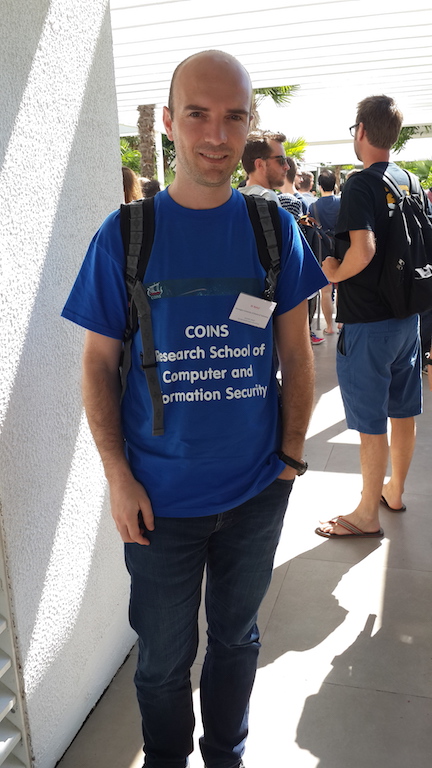
Sonu Jha
Ph.D. started in: 2019
Expected year of graduation: 2023
COINS consortium member: Norwegian University of Science and Technology
Supervised by: Stig Frode Mjølsnes, Colin Boyd
Links: ![]()
Research area: Cryptography
Project title: Lightweight Cryptography for Future Smart Networks
Project description: The recent years have seen an exponential increase in the complexity of Cryptographic Algorithms. Such complex algorithms were born as an answer to the vast omputational resources available to the average Eve. But the problem arises because of the overheads associated with such complex cryptographic systems. This sets the stage for the birth of Lightweight Cryptographic ystems(LCS). Constrained devices are limited in terms of power usage and the resources required to run complex
cryptographic algorithms in order to secure the data which users store there on a daily basis. LCS is a new research paradigm, where researchers started focusing on designing cryptographic primitives, the implementations of which would work effortlessly in constrained environments with very fewer number of resources, and would still provide the standard level of security required nowadays. In order to achieve these goals, designers mainly focus on designing primitives which has simpler round iterations with simpler operations such as XOR, rotations, 4 x 4 S-boxes and bit permutations. It is also kept in mind that the block sizes and key sizes should be small and the key-scheduling should also be simple enough. Taking such measures often helps in coming up with designs which are significantly lightweight with respect to code size/RAM usage/cycles used, but then many of them fail in providing a better security margin and hence are broken in a very short amount of time. Therefore it also requires
a change in the threat model and the limitations of the attacker when working with Lightweight Cryptography. The other research challenge in lightweight cryptography is the evaluation of different proposed designs. It is often the case that different proposals emphasizes on providing solutions for specific issues. Therefore evaluating different designs becomes challenging due to the criteria becoming relative. Some evaluations reflects the lgorithms as better, and some reflect the better implementation choices. Therefore, there is a need of fixing more parameters when it comes to evaluating different lightweight standards. With all the challenges lying ahead, there is no doubt that Lightweight Cryptography is indeed one of the most promising and important research areas among the current research trends in the field of Cryptography.

